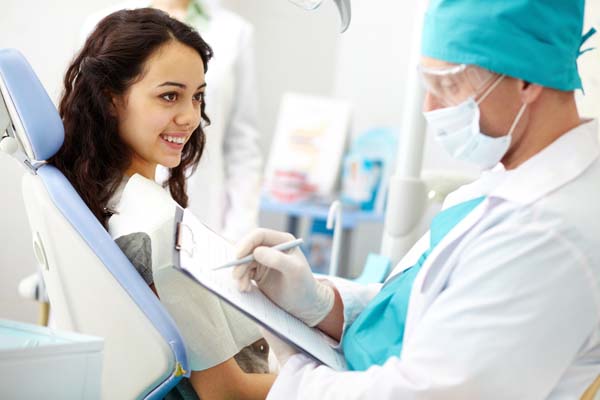Looking for emergency dental care in Austin, TX? No worries! Austin Family Dentist has got you covered with reputable dentists who specialize in handling dental emergencies. Whether you’re experiencing severe tooth pain, a broken tooth, or any other dental emergency, rest assured that there are skilled professionals available to help.
In times of dental emergencies, it’s crucial to seek immediate attention to prevent further complications. Do not hesitate to reach out to emergency dentists in Austin, TX. They are dedicated to providing prompt and effective dental care, ensuring your well-being and helping you get back to your healthy smile. Trust these experts to handle your dental emergency with care and expertise.
Emergency Dental Care in Austin, TX
Having access to emergency dental care is crucial when unexpected dental issues arise. Dental emergencies can be painful and require immediate attention to prevent further damage or complications. If you are in Austin, TX, there are several options for emergency dental care available to ensure you receive the treatment you need promptly.
What is Emergency Dental Care?
Emergency dental care refers to the immediate treatment and management of dental issues that require urgent attention. These issues often involve severe pain, trauma, or damage to the teeth, gums, or mouth. It is important to distinguish between routine dental care and emergency dental care. While routine dental care focuses on preventative measures and maintaining oral health, emergency dental care aims to address urgent problems and provide immediate relief.
Importance of Emergency Dental Care
Seeking emergency dental care as soon as possible is vital for several reasons. Firstly, dental emergencies can be incredibly painful, causing severe discomfort and affecting your daily life. Prompt treatment can help alleviate pain and prevent it from worsening. Secondly, delaying emergency dental care can lead to further complications or permanent damage, potentially requiring more extensive treatment in the future. Lastly, quick intervention can increase the chances of preserving damaged teeth or restorations, avoiding the need for extractions or replacements.
Finding an Emergency Dentist in Austin, TX
When facing a dental emergency in Austin, TX, it is essential to find an emergency dentist who can provide the necessary care. Start by researching local emergency dentists and clinics in your area. Read online reviews and recommendations from other patients to gauge their reputation and reliability. Additionally, consider factors such as their qualifications, years of experience, and any specializations they may have. It is also important to find out about their availability, timing, insurance coverage, and payment options, which will be discussed further in this article.
Common Dental Emergencies
Understanding the different types of dental emergencies can help you recognize when immediate care is needed. By being aware of these common dental issues, you can take appropriate action and seek timely treatment.
Toothaches and Dental Pain
Toothaches and dental pain can be caused by various factors, including tooth decay, infection, gum disease, or an abscessed tooth. The pain can range from mild to intense and may worsen when chewing or applying pressure. If you experience persistent toothaches or severe dental pain, it is essential to seek emergency dental care to identify the underlying cause and alleviate your discomfort.
Chipped or Broken Teeth
Accidents or injuries can result in chipped or broken teeth. Whether due to a fall, a sports-related incident, or biting down on a hard object, chipped or broken teeth require immediate attention. Such damage can expose the inner layers of the tooth, increasing the risk of infection or further deterioration. Emergency dental care can assess the severity of the damage and recommend appropriate treatment options.
Knocked-Out Teeth
Having a tooth knocked out, also known as avulsion, is a dental emergency that demands immediate action. If you are able to locate the knocked-out tooth, handle it by the crown (the top part) and avoid touching the root. Rinse the tooth gently with water and, if possible, try to place it back into the socket. If this cannot be done, store the tooth in milk or saliva and seek emergency dental care immediately. Time is of the essence to increase the chances of successfully reattaching the tooth.
Loose or Dislodged Teeth
When a tooth becomes loose or gets partially dislodged, it is important to seek emergency dental care as soon as possible. Trauma, such as a blow to the face, can cause the tooth to become loose or move out of its socket. By seeking immediate treatment, an emergency dentist can assess the damage and take steps to stabilize or reposition the tooth to prevent further complications.
Lost Dental Filling or Crown
If a dental filling or crown falls out, it can cause significant discomfort and leave the affected tooth vulnerable to further damage. Seek emergency dental care to have the filling or crown replaced promptly. In the meantime, if the tooth is sensitive, you can use temporary dental cement (available at most pharmacies) to temporarily cover and protect the exposed area.
Abscessed Tooth
An abscessed tooth occurs when a bacterial infection leads to the formation of a pus-filled pocket around the tooth root. This condition can cause severe pain, facial swelling, and a bad taste in the mouth. Due to the risk of the infection spreading, it is crucial to seek emergency dental care. An emergency dentist can drain the abscess, prescribe antibiotics, and provide the necessary treatment to address the underlying cause.
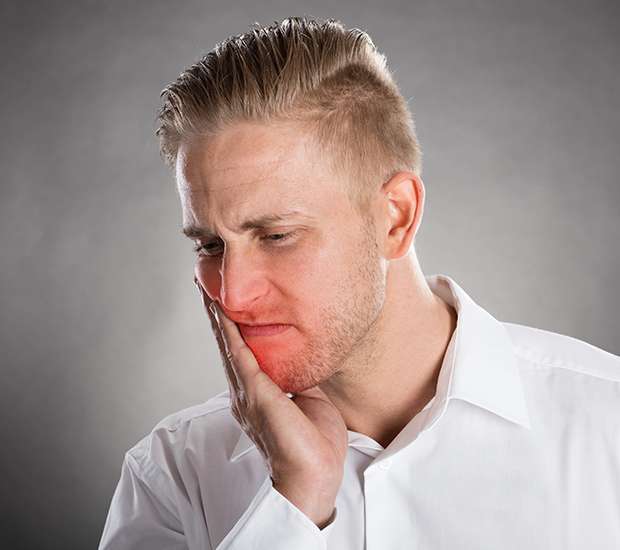
Steps to Take in a Dental Emergency
When confronted with a dental emergency, taking immediate action can help alleviate pain and prevent further complications. Follow these steps to manage a dental emergency effectively:
Assess the Situation
Start by assessing the situation and determining the severity of the dental emergency. Evaluate the level of pain, any visible damage to the teeth or gums, and the potential for complications if left untreated. This initial assessment will help you communicate the urgency to the emergency dentist and provide them with the necessary information.
Manage Pain and Discomfort
While waiting for emergency dental care, there are steps you can take to manage pain and discomfort. Rinse your mouth with warm saltwater to help reduce inflammation and provide temporary relief. Over-the-counter pain medications, such as ibuprofen or acetaminophen, can also help alleviate pain in the interim. However, avoid placing aspirin directly on the affected area, as this can cause chemical burns to the gums.
Preserve the Tooth or Dental Restoration
If a tooth or dental restoration (filling or crown) has been dislodged but remains intact, be sure to preserve it properly. If possible, gently rinse the tooth or restoration with water to remove any debris, being cautious not to scrub or touch the root portion. Store the tooth or restoration in a small container with milk or saliva to keep it moist. These steps can help increase the chances of successful reattachment or reinsertion by the emergency dentist.
Contact an Emergency Dentist
After assessing the situation and managing pain, the next step is to contact an emergency dentist in Austin, TX. Explain your dental emergency and ensure the dental office understands the urgency of your situation. The receptionist or dental professional will provide guidance on what to do next and may offer advice or instructions until you can reach their office.
Follow Additional Instructions
Upon speaking with the emergency dentist, be sure to follow any additional instructions given. They may request you to take certain steps or measures to further manage the dental emergency before your appointment. These instructions could include applying an ice pack to reduce swelling or avoiding specific foods or activities that may exacerbate the issue.
Emergency Dental Care in Austin, TX
When seeking emergency dental care in Austin, TX, it is essential to be aware of the services offered, availability, insurance coverage, payment options, and location/accessibility of the dental clinic.
Types of Services Offered
Emergency dental clinics in Austin generally offer a wide range of services to address various dental emergencies. These services may include the treatment of toothaches, broken or chipped teeth, knocked-out teeth, dislodged teeth, lost fillings or crowns, and abscessed teeth. Some emergency dental clinics may also provide other services such as root canals, extractions, or cosmetic dentistry.
Availability and Timings
Emergency dental clinics in Austin typically understand the urgent nature of dental emergencies and strive to be available outside of regular office hours. Many clinics offer extended hours during the evenings, weekends, and holidays to cater to emergencies that may occur outside of typical business hours. It is important to contact the emergency dental clinic beforehand to confirm their availability and ensure they can accommodate your emergency dental needs promptly.
Insurance and Payment Options
When choosing an emergency dentist in Austin, TX, it is important to consider their insurance coverage and payment options. Some emergency dental clinics accept various dental insurance plans, while others may require payment at the time of the visit. Inquire about the accepted insurance providers and ask about any financing or payment plans they may offer to make emergency dental care more affordable and accessible.
Location and Accessibility
If you are experiencing a dental emergency, it is crucial to choose an emergency dental clinic in Austin that is easily accessible. Consider the location and proximity to your home or workplace, and ensure there is ample parking or convenient public transportation nearby. Additionally, if you have mobility issues or require wheelchair accessibility, confirm with the clinic that they can accommodate your needs.
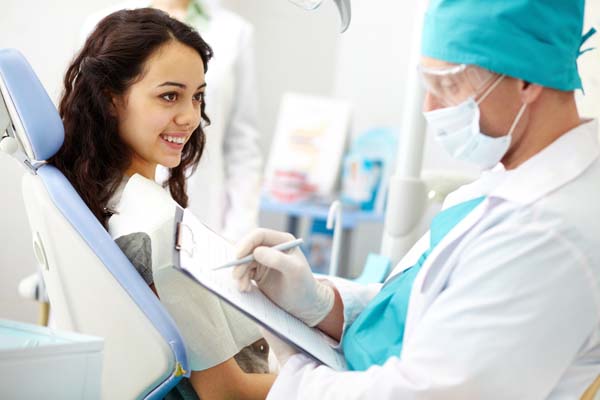
Choosing the Right Emergency Dentist
Selecting the right emergency dentist in Austin, TX, is essential to ensure you receive the best possible care during a dental emergency. Consider the following factors when choosing an emergency dentist:
Qualifications and Credentials
Check the qualifications and credentials of the emergency dentist. Ensure they have the necessary training, education, and licensing to practice dentistry. A reputable emergency dentist will be willing to provide proof of their qualifications upon request.
Experience and Specializations
Consider the experience and specializations of the emergency dentist. Dentists who have dealt with numerous dental emergencies are more likely to accurately diagnose and effectively treat your specific issue. If you have a particular concern or require specialized treatment, find an emergency dentist who has expertise in that area.
Patient Reviews and Recommendations
Read patient reviews and recommendations about the emergency dentist you are considering. Reviews can provide valuable insights into the quality of care, professionalism, and customer service offered by the dental practice. Look for consistent positive feedback and recommendations from previous patients.
Emergency Dentist vs Regular Dentist
While regular dentists can often provide emergency dental care, emergency dentists specialize in immediate treatment and management of dental emergencies. They are equipped to handle a wide range of urgent dental issues and have the necessary experience to act swiftly. When facing a dental emergency, it is generally recommended to seek care from an emergency dentist to ensure you receive the most appropriate and timely treatment.
Preventing Dental Emergencies
While dental emergencies are unpredictable, there are proactive measures you can take to minimize the risk of encountering one. By incorporating these preventive strategies into your daily routine, you can help maintain good oral health and reduce the likelihood of experiencing dental emergencies.
Maintaining Good Oral Hygiene
Practicing good oral hygiene is fundamental to preventing many dental issues. Brush your teeth at least twice a day with a fluoride toothpaste, floss daily, and use an antimicrobial mouthwash to remove plaque and bacteria. Additionally, maintain a healthy diet and limit sugar consumption, as it can contribute to tooth decay.
Wearing Protective Devices
If you participate in sports or recreational activities that pose a risk of dental injury, wear a mouthguard to protect your teeth and jaw. Mouthguards cushion and absorb impact, reducing the chances of chipped, broken, or knocked-out teeth. Custom-fitted mouthguards are available from your dentist and provide a higher level of protection compared to store-bought options.
Avoiding Bad Oral Habits
Certain oral habits can increase the risk of dental emergencies. Avoid habits such as nail-biting, chewing on ice or hard objects, using teeth as tools (e.g., opening packages), and grinding or clenching your teeth. These habits can cause damage to the teeth and increase the likelihood of dental emergencies.
Regular Dental Check-Ups
Regular dental check-ups and professional cleanings are crucial for maintaining oral health and detecting potential issues early on. Your dentist can identify any signs of tooth decay, gum disease, or other dental problems and address them before they progress into emergencies. Make it a priority to schedule routine dental appointments as recommended by your dentist.
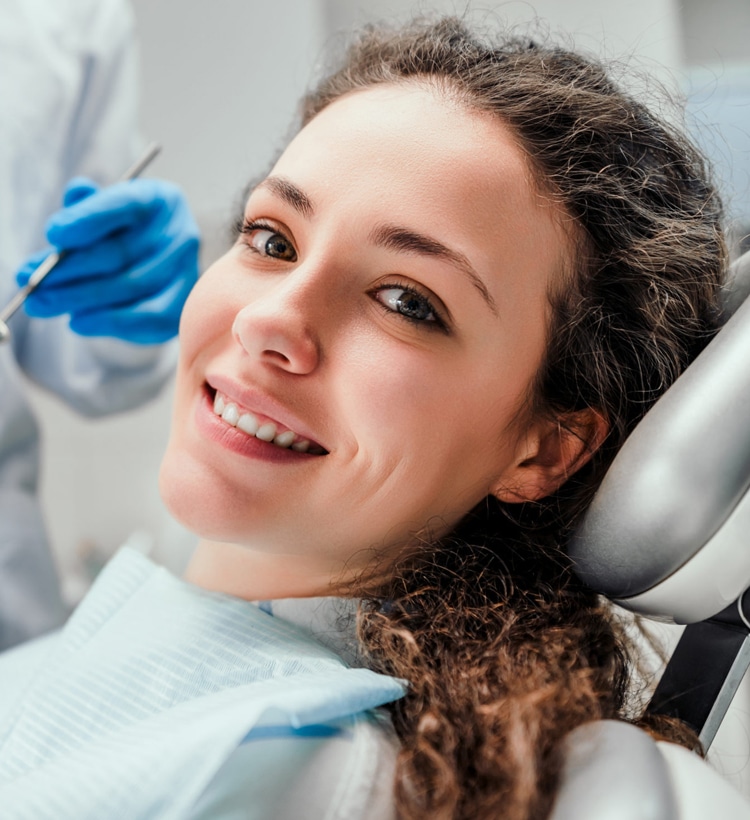
Preparing for Dental Emergencies
Although dental emergencies are unexpected, being prepared can help you handle them more effectively. Consider the following steps to prepare for dental emergencies:
Creating an Emergency Dental Kit
Assemble an emergency dental kit that includes essential items to manage dental emergencies. Include items such as sterile gauze, saline solution, a container with a lid, over-the-counter pain relievers, temporary dental cement, and an ice pack. Keep this kit easily accessible in your bathroom or first aid cabinet.
Having Emergency Contact Numbers
Keep a list of emergency contact numbers readily available. Include the contact information of your regular dentist, emergency dental clinics in Austin, and any relevant dental specialists. Having these numbers at hand can save time and ensure prompt access to emergency dental care in case of an urgent situation.
Knowing Your Dental Insurance Coverage
Familiarize yourself with the details of your dental insurance coverage, especially regarding emergency dental care. Understand what is covered, any limitations or exclusions, and the process for filing claims in the event of a dental emergency. Knowing this information in advance can help minimize any stress or confusion during an emergency.
Cost of Emergency Dental Care
The cost of emergency dental care can vary depending on several factors. Understanding these factors can give you a better idea of what to expect in terms of expenses and enable you to plan accordingly.
Factors Affecting the Cost
The complexity of the dental emergency, the necessary procedures, and any additional treatments required will impact the overall cost of emergency dental care. For example, a simple chipped tooth may be less expensive to treat than a knocked-out tooth that requires reattachment or a root canal. The location and reputation of the dental practice can also influence the cost.
Insurance Coverage
Dental insurance coverage varies, and it is essential to know what your policy includes in terms of emergency dental care. Review your insurance policy or contact your insurance provider to understand the coverage limits, deductibles, and any out-of-pocket expenses you may be responsible for.
Payment Options and Financing
Emergency dental clinics may offer various payment options to accommodate different financial situations. In addition to accepting dental insurance, some clinics may offer payment plans, financing options, or discounts for upfront payments. Before receiving emergency dental care, discuss the payment options with the dental clinic to make appropriate arrangements.
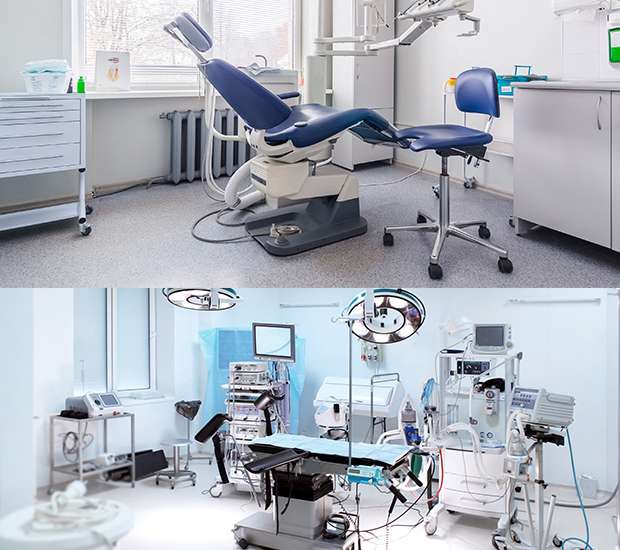
Community Resources and Support
In addition to emergency dental clinics, there are other community resources and support available in Austin, TX, for individuals who require dental care but may face financial constraints.
Emergency Dental Clinics
Some communities have emergency dental clinics that provide affordable or reduced-cost dental care for individuals in need. These clinics may operate on a sliding fee scale based on income or provide discounted rates for emergency services. Contact local health departments, community health centers, or dental schools to inquire about emergency dental care options.
Dental Schools
Dental schools often have clinics where dental students provide supervised dental care at reduced prices. These clinics can be a viable option for emergency dental care, as the students are closely monitored by experienced dental professionals. Contact dental schools in Austin, TX, to inquire about their emergency dental care services.
Non-Profit Organizations
Certain non-profit organizations and charities offer dental assistance programs for individuals who cannot afford dental care. These programs may cover emergency dental care or provide financial assistance for necessary treatments. Research local non-profit organizations or dental charities to determine if they have resources available for emergency dental situations.
Conclusion
Immediate dental care is crucial when faced with a dental emergency. In Austin, TX, there are numerous options for emergency dental care to ensure you receive prompt treatment and alleviate any pain or discomfort. By understanding the importance of emergency dental care, recognizing common dental emergencies, and following the necessary steps in a dental emergency, you can properly manage and address urgent dental issues. Additionally, taking preventive measures, being prepared, and knowing your options for emergency dental care can help reduce the likelihood of dental emergencies and ensure you are well-equipped to handle them if they arise. Remember to choose a trusted emergency dentist, maintain good oral hygiene, and prioritize regular dental check-ups to maintain optimal oral health. Dental emergencies can be stressful and overwhelming, but with proper knowledge and preparation, you can navigate through them with confidence.

